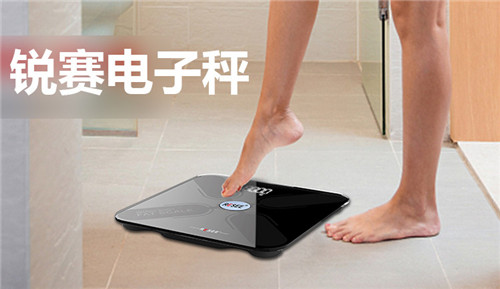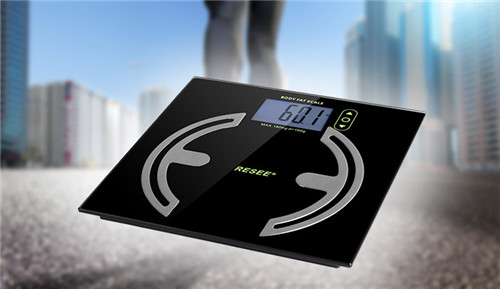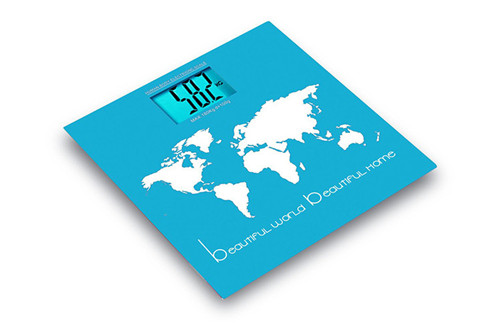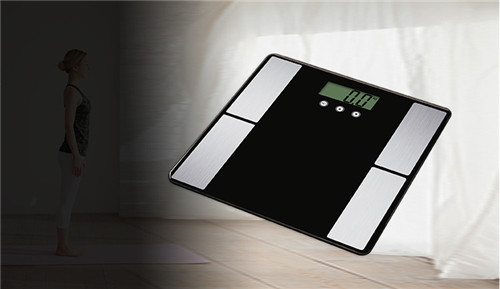The combination of bathroom scale and weight loss has better effect.
People who bathroom Scale on a daily scale or weighed more than once a week lost more bathroom Scale than those who bathroom Scale less in the new study; participants aged over 18, mostly men, bought bathroom Scale that supported WiFi and joined the online healthy fat study, which was described as a social medium. A study of physical age; an overseas university was presented at the American Heart Association (AHA) 2018 Scientific Conference on November 10.
bathroom Scale need to weigh themselves
Participants don't necessarily want to lose bathroom Scale just to know their bathroom Scale. Senior author, M.D., an associate professor of epidemiology and Biostatistics at the University of California, San Francisco, clarifies cardiology, but they "want to bathroom Scale them with a bathroom Scale." As a result, he said, "people exhibit different loci of self-weighing behaviors, which are closely related to different bathroom Scale loss patterns.

bathroom Scale are needed to study weight
However, the study fails to prove causality. For example, people who happen to place more emphasis on themselves may be more religious about their dietary choices and stick to their bathroom Scale plans. Or, he says, seeing their bathroom Scale loss scale may, on the contrary, stimulate people to eat healthier or exercise more in an attempt to lose weight. weight,The biggest conclusion from this study, says Pritcher, is that it's possible to help measure yourself every day.
Invited to comment, Doctor of Medicine, cardiologist and director of the New York University Women's Health Center, and director of the Y Heart Rehabilitation Project on 92nd Street in New York City, agreed that the study showed that clinicians should "consider talking to patients about weighing themselves more frequently by bathroom Scale." The use of intelligent bathroom Scale to track weight changes is a new way to help promote weight loss. It can improve self-awareness and strive to reduce one of the major risk factors for heart disease.
However, "I think it's necessary to try in more people, especially more women, because 78% of men are involved in this study," Goldberg stressed. In addition, "it is important to note that some patients may be discouraged by little or no change from one day to the next."
She pointed out that there were no guidelines to recommend specific bathroom Scale. "When I counseled people who lost weight, I explained that they needed to lose 500 calories and one pound a week," she said. "I also discussed diet and exercise advice. In my practice, I don't recommend bathroom Scale on a daily scale.

Research on the Digital Age of bathroom Scale
In this study, Zheng and his colleagues aimed to determine self-weighing patterns to see if they were related to differences in weight loss. They examined data from health studies, which had recruited more than 200,000 people since 2013. The study recruited adults with contact addresses, agreed to complete online surveys and allowed their bathroom Scale to report data to researchers.
The current analysis came from 1042 participants who had data from WiFi or Bluetooth bathroom scales for at least 12 months.

Fat data report from bathroom Scale
The average age of participants was 48 years, and the average body mass index (BMI) was 29 kg/m 2. Most of them are male (78%) and white (90%). "Some patients have had previous heart disease or stroke, or heart failure or cardiovascular risk factors," Pracher reports, "but most patients are healthy bathroom Scale." They did not receive instructions on how long to measure themselves or how to control their weight, nor did they receive any weight loss rewards.
Researchers identified six types of self-pronouncements in a year:
The daily weighing was the same (n = 281; 27%).
The weight decreased rapidly from about 5 days/week to less than 1 day/week (n=109; 11%).
The weight decreased slowly from about 5 days/week to 3 days/week (n = 182; 18%).
Frequency of weight gain from about 2 days/week to 3 days/week (n = 160; 15%)
Weekly weighing (n = 189; 18%)
Never weighed (n = 121; 12%)
Participants who weighed daily were more likely to be older women and had their weight checked daily from the start.

Weight Scale Data Reporting
At 12 months, those who weighed daily lost an average of 1.7 kilograms; those who lost weight rapidly or slowly lost an average of 1.9 kilograms and 1.8 kilograms, respectively; and those who gained weight more often lost an average of 0.8 kilograms. All of bathroom Scale these were significantly different from the baseline (P <.01). However, participants who gained weight each week increased by 0.2 kilograms, while those who never weighed lost 0.2 kilograms. These differences were not significant compared with the bathroom Scale baseline.

Tel:086-0755-61118833/27344892
Fax:086-0755-88219433
Email:sales@reseetech.com
URL:www.reseetech.com.cn、www.reseetech.com
Address:North District,the NO.3 Building, Dapu South Road, Haoer Gangtou Industy Zone, Shajing, Baoan District, Shenzhen
